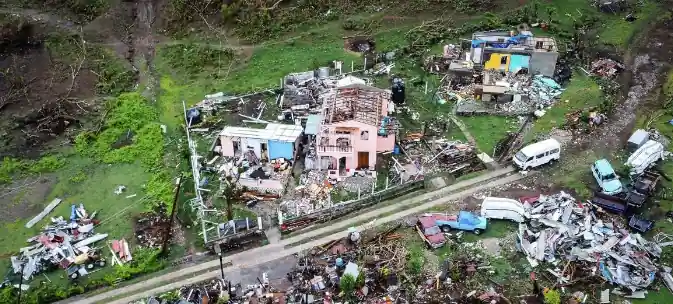With the 2024 Atlantic hurricane season coming to an end on November 30th, it has left behind a grim picture of the destruction caused by global warming.
While the hurricanes have impacted larger areas across the Caribbean and the USA, they have proved more challenging for the Small Island Developing States (SIDS) of the Caribbean.
This year registered the 9th consecutive season during which above-normal hurricane activity was observed, with as many as 18 named storms, 11 hurricanes, and 5 major hurricanes.
Among these, Hurricane Beryl stood out as a record-setter. This Category 5 hurricane in the Atlantic caused much devastation in the southern islands during July. It made a direct impact on Grenada before moving onwards to Jamaica and the Cayman Islands. These nations faced peculiar challenges in dealing with the aftermath of this hurricane due to limited experience in handling such calamities.
There was widespread destruction of infrastructure, houses, and livelihoods, which were significantly impacted.
The advanced warning systems that have been put in place by the government helped reduce the fatalities during the hurricane compared to previous years. According to WMO Secretary-General Celeste Saulo, even as the Caribbean nations continue to face the wrath of climate change, early warning systems this year proved to be a life-saving mechanism.
Other than Beryl, Hurricanes Helene and Milton also caused much destruction in the United States of America.
Helene was a Category 4 hurricane that impacted Florida’s Gulf Coast in September this year. This caused 150 fatalities and is being considered the deadliest hurricane in the US since Katrina in 2005. The local population had to deal with flooding and strong surges during this hurricane.
It was followed by Hurricane Milton in October, which had a huge impact on areas of Siesta Key, Florida. This was a Category 3 storm that was followed by a tornado outbreak, flooding, and ended up taking a huge economic toll on the affected areas.
Even as the advanced warning systems have helped reduce the loss of life in the areas, the economic losses caused by these hurricanes due to climatic conditions cannot be undermined.
In the United States alone, four hurricanes have caused losses exceeding $1 billion each. The impact in the Caribbean nations has also been huge.
This surely brings into focus the need for collaborative efforts at the global level to deal with challenges arising from climate change, especially in the Caribbean region, as its geographical location puts it at a certain disadvantage when it comes to hurricanes.
The Caribbean nations have already started rebuilding what has been lost to these hurricanes, but the increase in intensity and frequency of these hurricanes is surely posing a huge challenge for the region.
These hurricanes continuously remind the world that without taking concerted action to bring down global warming, the world will not be able to sustain the present pace of development.







